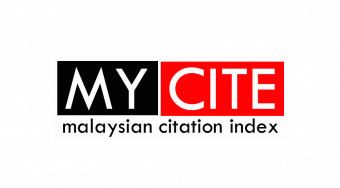NIGERIA IN THE MINDS OF UNDERGRADUATE STUDENTS IN PUBLIC TERTIARY INSTITUTIONS: AN EMPIRICAL SURVEY ON THE TRUST DEFICIT IN POLITICAL GOVERNANCE
DOI:
https://doi.org/10.46754/umtjur.v5i1.299Keywords:
Trust deficit, political governance, poor performance, economic inequality, tertiary institution, NigeriaAbstract
This study examined the extent of trust deficit in political governance among tertiary institution undergraduate students of Nigeria in political governance. The study adopted the descriptive survey research design. Multi-stage sampling procedure was adopted to sample 780 undergraduate students of Colleges of Education, Polytechnics and Universities in Osun State, Nigeria. An 18-item research instrument titled “Empirical Trust Deficit Survey in Political Governance” was used in data collection. The items were polytomously scored using a five-point Likert scale ranging from Strongly Disagree (SD, rated 1), Disagree (D, rated 2), Neither Agree nor Disagree (NAD, scored 3), Agree (A, given point 4); and Strongly Agree (SA, given point 5). The instrument was validated by three experts in Psychology and Educational Tests and measurement; administered on 90 tertiary undergraduate students in Osun State, Nigeria outside the study area; and yielded internal reliability index of 0.78. Data collected was analysed using descriptive statistics of simple percentage. Results showed that tertiary institution undergraduate students of Nigeria had distrust in political governance as the level of performance of their political office holders is low. Furthermore, undergraduate students of Nigeria neither agreed nor disagreed that economic inequality contributes to their distrust in political governance. Finally, there was a huge gap between campaign promises made by Nigerian politicians and fulfilment leading tertiary institution undergraduate students to develop loss of trust in them. It was recommended among others that there should be adequate monitoring in political governance in Nigeria to ensure that at least over 60% of the campaign promises made during election are fulfilled.
References
Adelopo, I., & Rufai, I. (2020). Trust deficit and anti-corruption initiatives. Journal of Business Ethics, 163, 429-449. DOI: https://doi.org/10.1007/s10551-018-4059-z
Akinola, O. A., Omar, B., & Mustapha, L. K. (2021). Salience in the media and political trust in Nigeria: The mediating role of political participation. Pertanika Journal of Sciences and Humanities, 1, 1-18. DOI: https://doi.org/10.47836/pjssh.29.4.03
Cohen, J. E. (2015). Presidential leadership in public opinion: Causes and consequences. DOI: https://doi.org/10.1017/CBO9781316014875
New York, NY: Cambridge University Press.
Godefroidt, A., Langer, A., & Meuleman, B. (2015). Developing political trust in a developing country: The impact of cultural and institutional factors on political trust in Ghana. Centre for Research on Peace and Development (CRPD) Working Paper, 22, 1-19.
Jackson, J., & Gau, J. M. (2016). Carving up concepts? Differentiating between trust and legitimacy in public attitudes towards legal DOI: https://doi.org/10.2139/ssrn.2567931
authority. In Interdisciplinary perspectives on trust (pp. 49-69). Springer, Cham.
Kim, P., & Han, I. (2021). The relationship between trust in government and citizen participation: What role does democratic
innovation play? Korean Public Administration Review, 55(1), 57-91. Retrieved March 17, 2023, from http://dx.doi.org/10.18333/KPAR.55.1.57 DOI: https://doi.org/10.18333/KPAR.55.1.57
Kim, Y. (2015). Toward an effective government public relationship: Organisation-public relationship based on a synthetic approach
to public segmentation. Public Relations Review, 41(4), 6-20. Retrieved April 20, 2023, from http://dx.doi.org/10.1016/j.pubrev.2015.06.020 DOI: https://doi.org/10.1016/j.pubrev.2015.06.020
Kumagai, S., & Iorio, F. (2021). Building trust in government through citizen engagement. Governance Global Practice, World Bank. DOI: https://doi.org/10.1596/33346
Kumar, A., Capraro, V., & Perc, M. (2020). The evolution of trust and trustworthiness. Journal of Royal Society, 17, 1-10. DOI: https://doi.org/10.1098/rsif.2020.0491
Mansbridge, J., Cohen, J., Cammack, D., Stone, P., Achen, C. H., Leib, E. J., & Landemore, H. (2022). Representing and being represented in turn: A symposium on Helene Landemores’s “Open democracy”. Journal of Deliberative Democracy, 18(1). Retrieved March 17, 2023, from https://doi.org/10.16997/10.16997/jpd.1213 DOI: https://doi.org/10.16997/10.16997/jdd.1213
Tyler, T. R. (2006). Why people obey the law. New Haven, Yale University Press. Tyler, T. R., & Jackson, J. (2014). Popular legitimacy and the exercise of legal authority: Motivating compliance, cooperation, and engagement. Psychology, Public Policy, and Law, 20(1), 78-95. DOI: https://doi.org/10.1037/a0034514
Uslaner, E. M. (2013). Trust and corruption revisited: How and why trust and corruption shape each other. Quality and Quantity, 47(6), 3603-3608. DOI: https://doi.org/10.1007/s11135-012-9742-z
Zicheng, W., Huiting, L., Tianfeng, L., Lijuan, Z., & Mingxing, Z. (2022). The impact of internet use on citizens’ trust in government:
The mediating role of sense of security. Systems, 11(47), 1-19.
Additional Files
Published
How to Cite
Issue
Section
License
Copyright (c) 2023 Universiti Malaysia Terengganu Journal of Undergraduate Research

This work is licensed under a Creative Commons Attribution-ShareAlike 4.0 International License.




